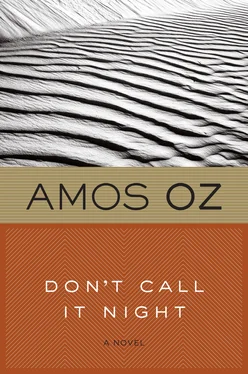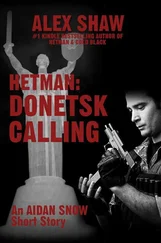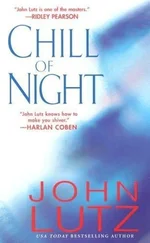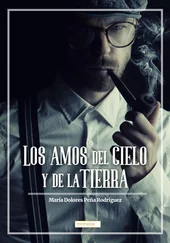Since then I sometimes drop in on them in the early evening, when Noa is out, of course, and as for poor Natalia, she has apparently gone, or escaped, to her sister in Hazor in Galilee. That much I managed to get out of them after two more lost games. I enjoy spending an hour or two in the company of these rambunctious men. I can hardly understand their language, but I like their thunderous laughter their shoulder-slapping, their roars, their elbows jabbing me in the ribs, the shabby, low-ceilinged room with the greasy smell of frying coming from the tiny kitchen For some reason it reminds me of the fireside nights with strangers, in the courtyards of country inns in remote regions near the shores of the Caribbean. They treat me to spicy, wonderfully tasty pickled fish and a glass of vodka, I lose fifty or eighty shekels, and sometimes I am caught up in their raucous laughter over some joke that I cannot understand. I forget that my initial object was to try to dissolve their jealousy, to get the husband to take Natalia back and to get Natalia to come back to me and clean my office on Fridays. I had the impression they were trying to show me with roars and comical rounded gestures that Natalia was pregnant, so there was no point in my running after her and that her sister in Galilee was expecting a baby, too. But it is hard to know if I understood correctly or if I simply put together a story of my own on the basis of their gestures and laughs. And, in fact, what business was it of mine?
At certain moments I can almost see her: hardly more than a girl, about seventeen, golden-haired, slim, shy, silently fearful, her waist and breasts are those of a woman but she has a smile of sweet confusion or childlike wonder on her face, even when she thinks I am not looking at her. Between smiles her lips purse as if to weep. Whenever I put a perfectly simple question to her, such as whether she has parents, or whether there is any water left in the electric kettle, she turns white and trembles, as if she has committed a serious breach of polite behaviour, or as if I have made an obscene suggestion, and she whispers a faint apology and makes me give up on the answer and regret asking her in the first place, and turn my back to hide the lust that has suddenly transformed me into a rhinoceros. When I found out that her husband and his father had both been mechanics back in Moldavia, and that they had both been unemployed since arriving in Israel, I rang Muki Peleg and asked him, as a personal favour, to see if he could find them something temporary at least. Perhaps with one of the earth-moving contractors he sat with every day at the Council of Torah Sages in the California Cafe. Muki promised to fix it for me, what a question, like a rocket, even if I didn't really deserve it after throwing him and Ludmir off the committee; in fact, he wouldn't do it for me but for the sake of the Ingathering of Exiles, as the air hostess said to the Jewish passenger who begged her to lock herself in the toilet with him on the jumbo. And he went on to offer me a story about a little ballpoint pen factory that he was planning to set up here in partnership with Dubi Weitzman and Pini Bozo from the shoe shop, something really pioneering, the pens have an electronic device in them so that if you forget where you've put them all you have to do is whistle and they chirrup back at you, and Batsheva was finding them another investor — perhaps Orvieto and would I like to come in on it? We would double our money in three years, maximum, that was being cautious, because in fact the chances were we could double it in two and a half years.
On Saturday I started to jot down the headings for my paper. I found out from one of Noa's pamphlets that in Scandinavia they have had residential centres for under-eighteen-year-olds for some time, and precisely in small towns, far from the big cities, and there were mounting indications that they were successful, even representing a social and educational challenge that focused the life of the host population and sometimes produced a "thriving example of a therapeutic community", a supportive milieu that developed a sense of purpose and a feeling of local pride. The framework that seemed to me best suited to Tel Kedar was that of a social experiment coupled with an academic study, not just another supply station for drug substitutes like adolan or methadone. As for the economic aspect, of course we can't be Scandinavia, but it made sense to begin with kids from wealthy families in central Israel, and, as I had suggested to Noa, we would do well to add in two or three locals, from needy families, for a token payment. That should clear the ground here a bit. It might strengthen our public opinion rating. But when I asked Noa to go over these notes she said, Don't give me drafts to read. Don't give me anything to read right now. Not just now, Theo. Can't you see that I'm trying to listen to some music quietly. Do me a favour and start the record over again, would you?
For a moment I had an urge to remind her that she was still getting a check for three hundred dollars every month from Orvieto, via his lawyer Arbel; it would be interesting to know what for actually, and somebody might well ask one day just exactly what she did with the money. She spends half her time nowadays with her Indian princess, Tal or Tali. From my office window, I can see them going to the hairdresser together, coming out of an afternoon showing at the Paris Cinema, sitting whispering at the lovebirds' table behind the pillar at the California Café. Sometimes I get up and lock the office, buy a Ma'ariv at Gilboa's, and go to the California myself. I do not join them but secure a lookout post on one side near the cash desk. Dubi Weitzman, if he has no work on, arrives a few minutes later paunchy, hairy, sweaty, with dusty sandals, always wearing a peaked cap like a Greek sea-captain's with gold braid all round it and a shiny anchor at the front; he sits down, orders us cold Cokes and a plate of cheese and olives, sighs and declares:
A casino, Theo, that's what'll save us here. Stop Tel Kedar from being a graveyard. A casino will bring us tourists, holidaymakers, girls, the big money will come pouring in and culture will follow. For me, you understand, the casino is just a means to an end. Culture, Theo, that's the object. Without culture we're living here like animals. Don't take it personally. Take it as food for thought.
A couple of days ago he said to me: Every time I go to Tel Aviv I notice the city has moved a bit closer to us. Holon is attached to Rishon Le-Zion. Rishon is creeping towards Ashdod. Ashdod will link up with Qiryat Gat. In another hundred years Tel Aviv will reach all the way to here, it'll knock on our door at five o'clock one morning and say, Good morning, dear friends, wake up, I'm here, and that's that, the exile will be over. But in the meantime we are stuck here beneath the mountains. Blast them. You could choke because of those mountains. Forget it. Let's have a game of chess. Don't you get fed up sometimes, Theo? Take it as food for thought.
Ludmir sometimes intercepts me in the square or outside the post office, promising to move worlds and to fight to the death against the nest of maggots that I am scheming to plant here, Sodom and Gomorrah, he is utterly ashamed of succumbing to the temporary blackout that made him join our committee, and he warns me, as though from pity, that there's "Noa smoke without a fire". Several times, in the kitchen, I've felt an urge to say something that would really hurt her, like a slap in the face. Something like, Tell me, have you ever actually seen a drug addict? Just one? From a distance? Through a telescope, perhaps? Like your father who used to sit in his wheelchair on his roof keeping an eye on the world through his telescope? And, as a matter of fact, tell me truly, could you actually tell the difference between someone who was drugged, sleepy or just plain moronic? How did you have the gall to take on a project you understand less about than I do about Eskimo cosmetics? And which has never really interested you for a moment, deep down? Was it just a pretext for getting out of the house? Was it just because you were fed up with teaching literature all day? What got into you to make you drive the whole town crazy and, the moment it was time to roll your sleeves up and get down to work, decide to change games and leave me to put your toys away after you?
Читать дальше












